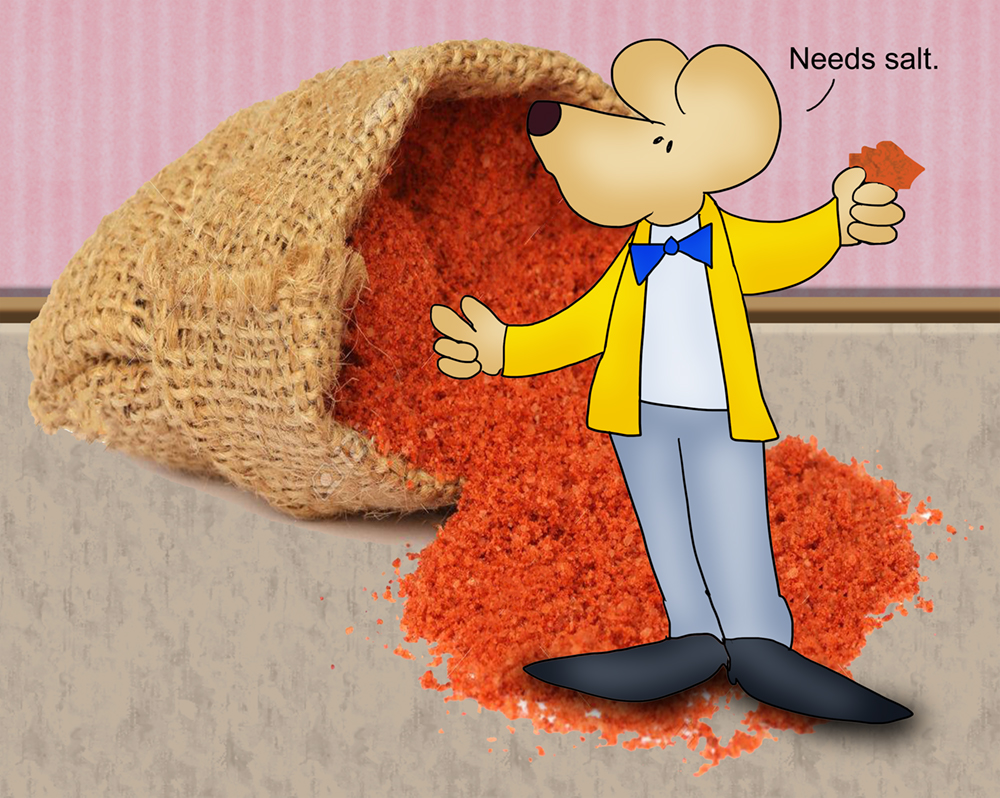I was very young when I first heard the word “potash.” I thought it was corned beef hash. I think the correlation in my mind can be seen there, the “pot” standing for potatoes, which I could picture chopped up in those tiny little cubes with the corned beef. Potash.
So I loved “potash” as a kid. I also thought it had an alternate name, “succotash.” Again, knowing how my brain works, the word was in the “ash” family. And Sylvester the Cat would commonly refer to “Sufferin’ Succotash” on a weekly basis. Either way, I loved it. And when Mom would sometimes ask us what we wanted for dinner, I would often respond by saying “suffering succotash” or “potash” please.
I am sure she probably thought I was being a wiseacre because it never showed up on our dinner table. The closest thing I got was when I would weasel my way into a dinner invitation at a friend’s house up the street. They were Lithuanian, and they made some kind of meat and potato dish that tasted a LOT like my potash. They always said I was too skinny and piled my plate high. I was a happy implanted little German girl in that Lithuanian family.
But that’s not why I bring this up. It is the potash. I learned today that the first-ever patent, issued in the United States went to Samuel Hopkins, for a process of making potash. The true “potash” is an ingredient used in fertilizer. It is unclear to me where Hopkins was born. Some sources say Vermont and others say Maryland. Either way, he had Quaker parents, and when he was about 16 years old, he was apprenticed to Robert Parrish, a Quaker tradesman in Philadelphia. He was living in Philadelphia, PA when the patent was granted.
That very first patent in the United States was signed by President George Washington, Attorney General Edmund Randolph, and Secretary of State Thomas Jefferson. There were a couple of other U.S. patents issued that year. One was for a new candle-making process and the other was Oliver Evans’s flour-milling machinery.
I’m a little curious about the candle-making process. What in the wick could it be?
But back to fertilizer. For the record, potash is mostly potassium (K) in a salt form. Like potassium chloride. (KCl). Canada is the world’s largest producer and exporter of potash and has the second-largest reserve. Our Russian pals hold the most reserves of potash. Big piles of Russian potash, I’m sure.
Potash is primarily used as a fertilizer (approximately 95%) to support plant growth and increase crop yield. Not only that, but it also helps with disease resistance, and enhances water preservation, in crops, that is. Besides the fertilizer, small quantities are used in manufacturing things such as detergents, ceramics, pharmaceuticals, water conditioners, and alternatives to de-icing salt.
We need it for fertilizer too. People. Potassium is an important element of the human diet. It is essential for growth and the maintenance of tissues, muscles, and organs, as well as the electrical activity of the heart. Boom, chucka-lucka-lucka. Boom, chucka-lucka-lucka. Lots of foods are rich with potassium, like bananas, honeydew mellow, cooked spinach, cooked broccoli, and on. Potatoes are on the list too. But not corned beef. So I looked it up. Seems like corned beef is chock full of potassium, with 123 mg per 3 ounces. One cup of spinach has 167 mg.
But I stray from potash, once again. The fertilizer. First U.S. patent. Yeah. The fertilizer that helps things to grow. Which brings me to us.
It may not sound very glamorous, but we can be fertilizer if we want to. In our everyday goings of things, we have the opportunity to show kindness to others, and compassion. If we choose to. And those are certainly two good ways to help others grow. Like fertilizer.
So.
Yes.
We can be potash. The best kind of potash.
==========
“More smiling, less worrying. More compassion, less judgment. More blessed, less stressed. More love, less hate.”
― Roy T. Bennett, The Light in the Heart
===========
“Our task must be to free ourselves… by widening our circle of compassion to embrace all living creatures and the whole of nature and it’s beauty.”
― Albert Einstein
==========
“Love and compassion are necessities, not luxuries. Without them, humanity cannot survive.”
― Dalai Lama XIV, The Art of Happiness
=============
